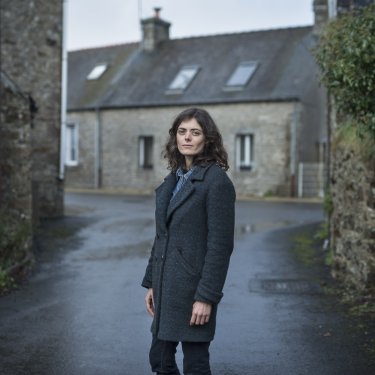France: RSF condemns Breton agribusiness lobby’s pressure on investigative reporter

As French freelance journalist Inès Léraud prepares for the first hearing next week in a defamation suit by Groupe Chéritel, an agribusiness company operating in Brittany, in northwestern France, Reporters Without Borders (RSF) condemns the pressure and smears that investigative reporting on Breton agribusiness practices often elicits, and calls on the company to withdraw its lawsuit.
Fruit and vegetable wholesaler Jean Chéritel and his company Chéritel Trégor Légumes are suing Inès Léraud and the news website Basta! over an article published on 26 March 2019 in which she criticized their managerial practices on the basis of information from her sources and the company’s past convictions for fraudulent labelling and using illegal labour. A Paris court is due to begin hearing the suit on 28 January.
“The pressure and lawsuits to which Inès Léraud has been subjected send a very clear message to all journalists in Brittany: don’t investigate agribusiness practices in your region because the price is too high,” said Pavol Szalai, the head of RSF’s European Union and Balkans desk. “We urge Jean Chéritel to withdraw his complaint and we call on Breton agribusiness lobbyists to stop smearing this respected journalist and stop obstructing the work of Breton reporters who have the courage and skills to investigate subjects that are very important for the region’s inhabitants.”
“Jean Chéritel’s lawsuit aims to identify and intimidate my journalistic sources,” Léraud said. “It’s about silencing coverage of the company’s practices and making sure that it is not the subject of any investigative reporting, although it has long deserved to be investigated.”
This is the second time Léraud has been sued in connection with her investigative reporting on Breton agribusiness. In September 2019, she was sued by Christian Buson – who heads an environmental consultancy for businesses and also heads the Scientific and Technical Institute for the Environment and Health (ISTES) – over a passage quoting him in Algues vertes, l’histoire interdite (La Revue dessinée, 2019), her cartoon strip book about the spread of toxic green seaweed on Brittany’s beaches and the attempts to cover up the links with the region’s intensive farming.
Buson finally withdrew his suit four days before a court was due to begin hearing it on 7 January 2020, after Léraud had spent a lot of time preparing her defence, time she would otherwise have spent on doing more investigative reporting.
Her book, which was awarded the Journalism Prize at the “Assises du Journalisme” in October 2020, has elicited a great deal of political hostility in Brittany. Under pressure from local politicians, her invitation to participate in a book fair in the Breton town of Quintin was withdrawn in March 2020, while plans for a Breton-language version of the book have been suspended indefinitely.
Hervé Le Prince, the head of NewSens, a PR agency whose clients include influential Breton agribusiness companies, recently criticized Léraud for a documentary entitled Brittany, a land sacrificed, broadcast on the France 5 TV channel on 17 November, although it was not Léraud who made the documentary.
The climate of pressure and hostility towards journalists and media that investigate the agribusiness’s environmental impact in Brittany has worsened alarmingly since the documentary was broadcast. After receiving insults and threats immediately after the broadcast, Radio Kreiz Breizh, a Breton community radio, was broken into twice, on 2 and 9 December. The home of one of its journalists, Morgan Large, who talks in the documentary about her investigative reporting on subsidies for intensive farming, was also the direct target of a serious malicious act.
France is ranked 34th out of 180 countries in RSF's 2020 World Press Freedom Index.



